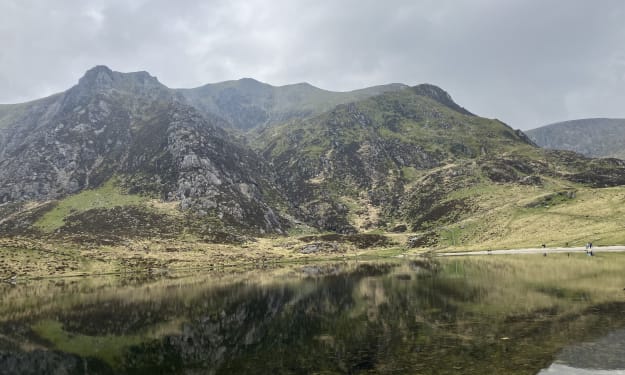Wildlife Conservation and Beyond
Exploring the Intricate Connection Between Sustainable Travel and Ecological Balance

In the face of mounting environmental concerns, sustainable travel has emerged as a powerful tool to satiate our desire for exploration while preserving and protecting the natural world. While wildlife tours have long been recognized for their contribution to wildlife conservation efforts, sustainable travel encompasses a broader range of practices that foster ecological balance. From sustainable accommodations to immersive cultural experiences, responsible consumption, and diverse conservation initiatives, this article explores how sustainable travel is shaping the travel industry for the better, promoting positive socio-cultural impacts, and safeguarding our planet's precious resources.
The Power of Sustainable Accommodations
Sustainable travel goes beyond the boundaries of wildlife tours, encompassing the entire travel experience, including accommodations. Today's conscious travelers actively seek eco-friendly lodging options that align with their commitment to sustainability. Fortunately, an increasing number of hotels and resorts are answering this call by adopting green practices. These establishments prioritize reducing their carbon footprint, implementing renewable energy sources, and employing water conservation strategies. Additionally, they support local communities by sourcing materials and labor locally, investing in community development projects, and engaging in responsible tourism practices. By choosing sustainable accommodations, travelers not only minimize their environmental impact but also directly contribute to supporting sustainable initiatives.
Immersive Cultural Experiences
Sustainable travel recognizes that engaging with local cultures and communities is essential to fostering a harmonious relationship between travelers and destinations. When travelers interact with indigenous populations, support local artisans, and participate in traditional activities, they contribute to the preservation of cultural heritage. By valuing and celebrating cultural diversity, sustainable travelers play a vital role in ensuring that local traditions and ways of life endure for generations to come. Moreover, these interactions lead to a deeper appreciation and understanding of different cultures, promoting cross-cultural harmony and respect.
Promoting Responsible Consumption
One of the core principles of sustainable travel is promoting responsible consumption patterns that minimize waste and prioritize ethical choices. Sustainable travelers actively seek out local markets and businesses, thus supporting the economic development of communities and contributing to poverty alleviation. Furthermore, they opt for eco-friendly products and services, reducing their ecological footprint and encouraging businesses to adopt sustainable practices. By adopting sustainable consumption habits during their travels, individuals become ambassadors for responsible tourism, paving the way for a more environmentally conscious travel industry.
Conservation Beyond Wildlife
While wildlife conservation remains a crucial focus of sustainable travel, it also addresses broader ecological challenges. The preservation of fragile ecosystems, protection of biodiversity, and combating climate change are equally critical aspects of sustainable travel. Travelers can actively contribute to these efforts by participating in eco-tourism activities such as reforestation initiatives, marine conservation programs, and sustainable agriculture projects. Through such engagements, sustainable travelers become integral to the larger mission of ecological balance, safeguarding our planet's natural wonders for future generations.
Beyond direct conservation efforts, sustainable travel also plays a pivotal role in raising awareness and inspiring positive action among travelers and local communities alike. As tourists immerse themselves in the beauty of natural landscapes and encounter diverse wildlife, they develop a deeper connection to the environment. This emotional bond forged with nature fosters a sense of responsibility and stewardship. Sustainable travel experiences, such as guided tours led by knowledgeable conservationists and local experts, offer invaluable opportunities for education and understanding of the delicate ecosystems and wildlife that inhabit them.
Moreover, sustainable travel encourages collaboration and partnerships between travelers, local communities, and conservation organizations. As travelers engage in eco-tourism activities, they support initiatives driven by local expertise and community involvement. This approach empowers local populations to actively participate in the preservation and management of their natural resources. By valuing the unique cultural and environmental heritage of these destinations, sustainable travel ensures that conservation efforts align with the needs and aspirations of the people living there.
In addition to the direct conservation impact, sustainable travel's positive effects extend to economic development and social well-being. Responsible tourism practices that prioritize community involvement and cultural preservation generate economic benefits for local residents. Income generated through sustainable tourism ventures provides an incentive for communities to protect their natural assets rather than exploit them for short-term gains. As communities witness the economic value of their environment, they are more likely to become passionate advocates for conservation, thereby creating a sustainable cycle of mutual benefit between travelers and locals.
Moreover, sustainable travel fosters a sense of humility and respect for the destinations visited. It encourages travelers to embrace the concept of leaving no trace behind, minimizing their environmental impact, and ensuring that their presence does not harm the delicate ecosystems they explore. This mindful approach to travel sets an example for others, inspiring a wider shift in the travel industry towards sustainability.
The ripple effects of sustainable travel are far-reaching and contribute to a global movement towards ecological consciousness. As travelers return home with unforgettable experiences and newfound environmental awareness, they become ambassadors for sustainable practices in their communities. They share stories of their adventures and the importance of preserving natural wonders, inspiring others to adopt eco-friendly behaviors in their everyday lives and future travels.
Sustainable travel is a multifaceted approach that addresses not only wildlife conservation but also broader ecological challenges. By engaging in eco-tourism activities like reforestation, marine conservation, and sustainable agriculture projects, travelers actively contribute to the larger mission of ecological balance. Sustainable travel fosters awareness, education, and collaboration among travelers, local communities, and conservation organizations. It also drives economic development and social well-being while promoting responsible tourism practices. Through these efforts, sustainable travel leaves a positive and lasting impact on the destinations visited, inspiring a collective commitment to preserving our planet's natural wonders for the benefit of future generations.
Conclusion
Sustainable travel represents an opportunity for exploration and adventure without compromising the delicate balance of our natural world. As travelers, we hold the power to create positive change by making responsible choices during our journeys. By choosing eco-friendly accommodations, engaging with local cultures, promoting responsible consumption, and supporting diverse conservation initiatives, we become stewards of our planet. Sustainable travel is not just a passing trend; it is a call to action for each individual to embrace their role in creating a sustainable future for all. Together, we can preserve our planet's beauty, protect its biodiversity, and cherish its diverse cultures for generations to come. Let sustainable travel guide us towards a balanced world that thrives in harmony with nature.
About the Creator
Addison Hulse
Spontaneous & adventurous twenty-something writer, fearlessly exploring subjects on a whim. Captivating, thought-provoking narratives spark convos & inspire.






Comments
There are no comments for this story
Be the first to respond and start the conversation.